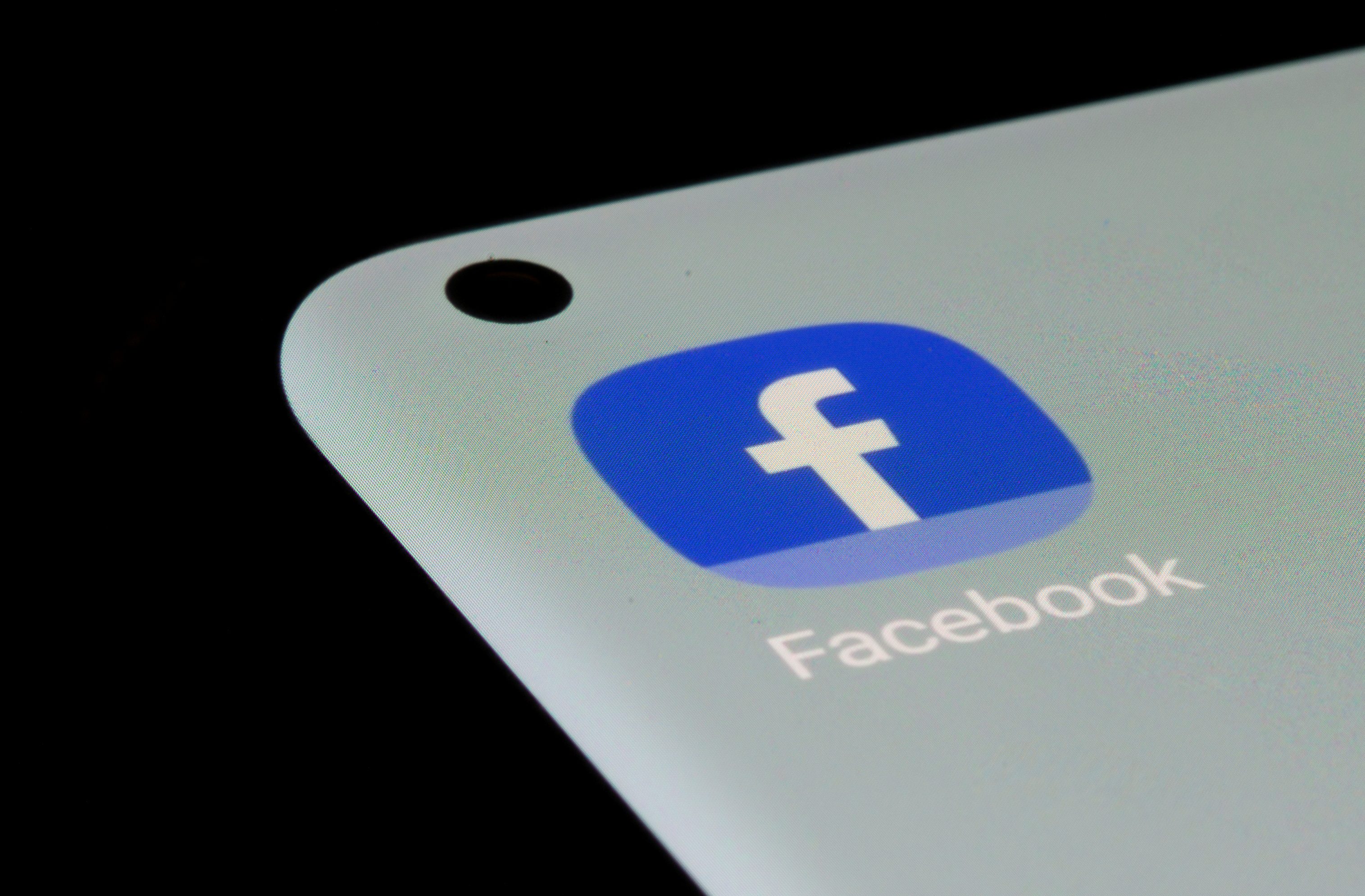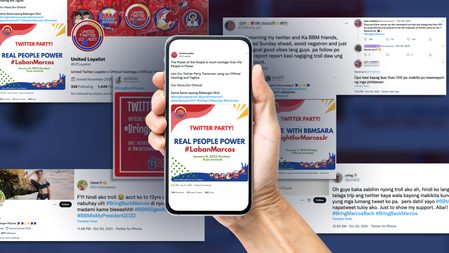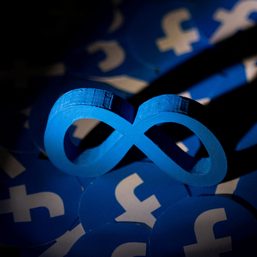SUMMARY
This is AI generated summarization, which may have errors. For context, always refer to the full article.

MANILA, PHILIPPINES – A key finding of the Digital Public Pulse (DPP) project’s third report said that a network of Facebook accounts, pages, and groups that are aligned with presidential aspirant Ferdinand “Bongbong” Marcos Jr. and President Rodrigo Duterte’s administration often posted “inflammatory campaigns and speech” against rivals, the opposition, and the media, ahead of the 2022 elections.
The DPP’s third report, presented on Wednesday, January 26, focused on Facebook and looked at shared posts from public accounts, profiles, and groups that mentioned election-related keywords from May to October 2021. The study was conducted by the Philippine Media Monitoring Laboratory to track behavior on Facebook in relation to the elections in May.
The researchers looked at the posts in two quarters: Quarter 1 from May to July 2021, and Quarter 2 from August to October 2021. They found that the accounts aligned with the Marcos family, the Duterte administration, and the government and local media formed a “supercluster” in Quarter 2 – an indication of these users’ overlapping behaviors on the platform.
The supercluster was formed from individual clusters identified in Quarter 1, which consisted of accounts that separately supported the Marcos family, President Duterte and vice presidential aspirant Sara Duterte, and Senator Bong Go.
This supercluster accounted for 21.26% of the entire Facebook sharing network mapped by the study in Quarter 2. The researchers found that accounts from this supercluster often posted content attacking other presidential aspirants Leni Robredo, Isko Moreno, and Manny Pacquiao. Some of the top attack words used were “mayabang” (arrogant), “kabobohan” (stupidity), “mandaraya” (cheat), and “Leni lugaw.”
The study also found that these accounts often pushed anti-mainstream media sentiment that implied bias in election coverage, but amplified content from state and local media outlets.
The other, smaller superclusters formed in Quarter 2 were the following:
- Accounts aligned with Moreno, vice presidential aspirant Ping Lacson, and President Duterte (19.6%)
- Boxing and gaming accounts aligned with Pacquiao (16.99%)
Meanwhile, the study noted that accounts aligned with Robredo and 1Sambayan shared the cluster with professional news media accounts that accounted for 11.88%. “[This] may imply that their communities heavily engage in news consumption more than others,” the study said.
Expansion of Marcos-related accounts
The study also found that accounts that share posts related to Marcos have expanded in Quarter 2. This was when Marcos announced his intention to run for president and when he filed his certificate of candidacy.
This is consistent with DPP’s first and second reports on YouTube and Twitter, respectively, where clusters of accounts posting about Marcos and supporting his presidential bid accelerated in Quarter 2.
A Rappler investigation also found that an emerging Marcos network is trying to take over Twitter with newly-created accounts, mostly in October 2021. Data from the investigation showed that the network promoted the dictator’s son and attacked critics as the elections loomed.
The reports on YouTube, Twitter, and Facebook are part of the first phase of DPP’s research that aims to detail the Philippine election digital landscape. The fourth and final report from the first phase, which is a comparative cross-platform analysis, will be presented on Wednesday, February 2.
The Philippine Media Monitoring Lab is a consortium of researchers in the fields of communication, political science, and data science. The DPP project is co-led by Marie Fatima Gaw and Jon Benedik Bunquin, both assistant professors from the University of the Philippines Diliman’s Communication Research department.
Rappler is a partner of the Philippine Media Monitoring Lab for the Facebook component of the DPP project. – Rappler.com
Add a comment
How does this make you feel?










![[New School] Tama na kayo](https://www.rappler.com/tachyon/2024/02/new-school-tama-na-kayo-feb-6-2024.jpg?resize=257%2C257&crop=290px%2C0px%2C720px%2C720px)





![[OPINYON] Tungkol sa naging viral na social media conjecture](https://www.rappler.com/tachyon/2024/07/thought-leaders-conjecture-07262024.jpg?resize=257%2C257&crop_strategy=attention)
![[DECODED] The Philippines and Brazil have a lot in common. Online toxicity is one.](https://www.rappler.com/tachyon/2024/07/misogyny-tech-carousel-revised-decoded-july-2024.jpg?resize=257%2C257&crop_strategy=attention)


There are no comments yet. Add your comment to start the conversation.